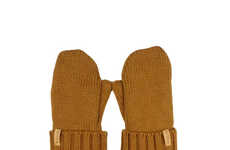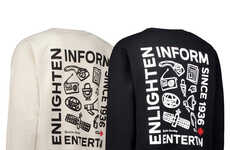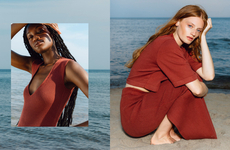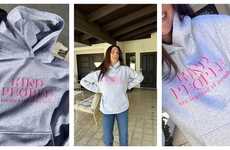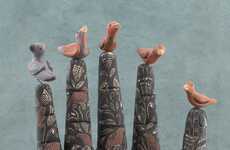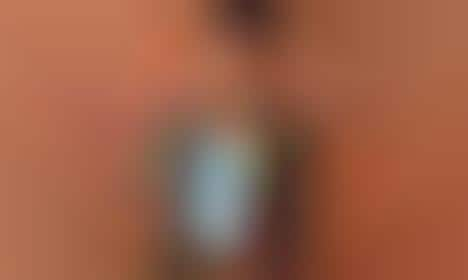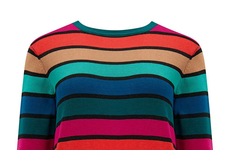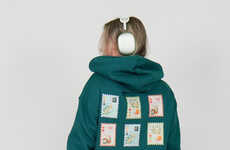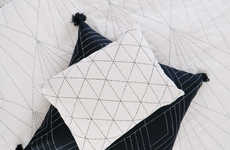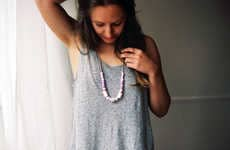
Moral Fibers is a Socially Innovative Start-Up Building Human Capital
Tiana Reid — July 7, 2011 — Social Good
References: moralfibers.co & facebook
From students at my alma mater, McGill University, comes Moral Fibers, a socially responsible brand and t-shirt retailer that supports Haitian artists by featuring their artwork on vibrant polycotton blend tees. The artists themselves receive 15% of each sale, which amounts to 24 hours of minimum wage. In Haitian terms, that’s about the same amount of money needed to feed the artist’s family for a month.
Moral Fibers doesn’t stop there. Founders Matt Brightman and Martin Weiss, both undergraduates at McGill’s Faculty of Agricultural and Environmental Sciences, are committed to a sustainable business model that impacts various areas of Haitian life without serving as just another charitable handout. With that being said, another 10% of sales goes to a charity or humanitarian cause that the artist him or herself has chosen.
What’s intriguing about Moral Fibers is its explicit philosophy regarding the potential impacts of social business and social enterprise. The Moral Fibers website reads: “Moral Fibers is not a non-profit, but it’s our company philosophy that no difference between a non-profit and for-profit affects the amount of good a company can do.” Certainly, that encapsulates some of what social enterprise is all about.
Moral Fibers offers duds fitted for both the ladies and the gents, all with beautifully bold artwork. The website includes the name of the artist, so it’s not a mere anonymous exchange, despite the likely class, race, nationality and geography differences between the artist and consumer.
Of course, the commodification of art for consumption purposes is nothing new. On the market are Jenny Holzer’s Keds and Tracey Emin’s Selfridges kitchenware, just to name a few. However, Moral Fibers takes a different route by offering a backstory, and indeed, it’s not the brand name you’re buying into, it’s the social side of things, and the hope that you’re contributing -- even in a small way -- to change and to building human capital in the less-industrialized world.
Contact Information:
Moral Fibers Website
32 Rue Sainte-Georges
SaInte-Anne-de-Bellevue
H9X 1J6
Telephone: 1-514-232-1420
Moral Fibers doesn’t stop there. Founders Matt Brightman and Martin Weiss, both undergraduates at McGill’s Faculty of Agricultural and Environmental Sciences, are committed to a sustainable business model that impacts various areas of Haitian life without serving as just another charitable handout. With that being said, another 10% of sales goes to a charity or humanitarian cause that the artist him or herself has chosen.
What’s intriguing about Moral Fibers is its explicit philosophy regarding the potential impacts of social business and social enterprise. The Moral Fibers website reads: “Moral Fibers is not a non-profit, but it’s our company philosophy that no difference between a non-profit and for-profit affects the amount of good a company can do.” Certainly, that encapsulates some of what social enterprise is all about.
Moral Fibers offers duds fitted for both the ladies and the gents, all with beautifully bold artwork. The website includes the name of the artist, so it’s not a mere anonymous exchange, despite the likely class, race, nationality and geography differences between the artist and consumer.
Of course, the commodification of art for consumption purposes is nothing new. On the market are Jenny Holzer’s Keds and Tracey Emin’s Selfridges kitchenware, just to name a few. However, Moral Fibers takes a different route by offering a backstory, and indeed, it’s not the brand name you’re buying into, it’s the social side of things, and the hope that you’re contributing -- even in a small way -- to change and to building human capital in the less-industrialized world.
Contact Information:
Moral Fibers Website
32 Rue Sainte-Georges
SaInte-Anne-de-Bellevue
H9X 1J6
Telephone: 1-514-232-1420
Trend Themes
1. Socially Responsible Retail - The trend of socially responsible retail offers an opportunity for businesses to support causes and make a positive social impact while generating profits.
2. Artistic Wearables - The trend of artistic wearables presents an opportunity for businesses to collaborate with artists and feature their artwork on clothing, creating unique and eye-catching fashion pieces.
3. Sustainable Business Models - The trend of sustainable business models allows companies to integrate environmental and social considerations into their operations, benefiting both the planet and society.
Industry Implications
1. Fashion Retail - The fashion retail industry can leverage the trend of artistic wearables by partnering with artists and incorporating their artwork into their clothing lines, attracting socially conscious consumers.
2. Non-profit Organizations - Non-profit organizations have an opportunity to tap into the trend of socially responsible retail by partnering with retailers and brands that prioritize making a positive social impact through their business practices.
3. Art and Design - The art and design industry can explore disruptive innovation opportunities by collaborating with fashion brands and retailers to create unique artistic wearables that blend fashion and art seamlessly.
6.2
Score
Popularity
Activity
Freshness

